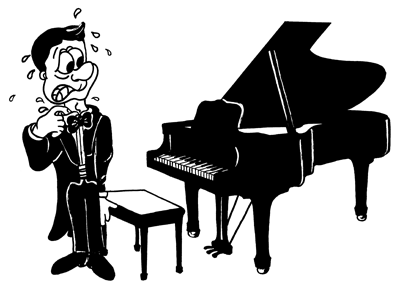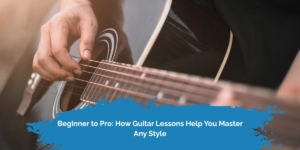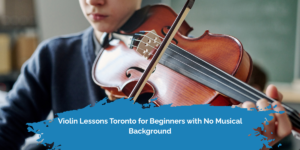 Overcoming Your Stage Fright as a Piano Player
Overcoming Your Stage Fright as a Piano Player
You’ve done your piano lessons. The crowd is hushed. The lights are causing sweat to gather at your hairline. Your hands are at B major, but somehow, you’ve forgotten what to do next.
Does this scenario sound familiar to you? If so, you aren’t alone. Many pianists suffer from stage fright at all points throughout their career, and it has nothing to do with experience or technical skill. Sometimes the pressure simply gets to you.
Just because this nightmare is common, however, doesn’t mean it’s insurmountable. Here’s a quick guide to overcoming your stage fright and delivering a great performance every time.
Practice At Home
Have you heard the rule about touching every key before actually playing it? It’s an old trick for beginners who find themselves fumbling with the keys when they start transitioning from easy pieces to more difficult ones. Instead of muddling through and skipping notes, you force yourself to slow down and actually make contact with every key before pressing down. This can become a great comfort ritual as you warm up during recitals.
Another technique is to go back to the past when you’re feeling anxious about the future. Reviewing the basics from your early piano lessons can really soothe your stress over current, more complicated pieces. For example, one week before your performance, slowly go over all the finger numbers for your songs. Solidify every note in your head. This will help you transform Ballade No. 4 from a frenzy of ink into a readable document when under pressure.
It’s also worth the effort to work on your posture. When you adopt confident, powerful poses, like sitting with your spine straight and your elbows on either side of your torso, your body automatically lowers its cortisol levels and reduces stress. If you can teach yourself to maintain these poses naturally, you can trick your body into providing chemical confidence.
Learn How To Cope
No pianist is perfect, so at some point, it’s inevitable that you’ll mess up during a performance. The key is to not let one missed note snowball into a series of mistakes out of fluster and fear.
One recovery tactic is to focus on a single aspect of your playing. You might count the beats, pay exclusive attention to your left hand, et cetera. This forces your mind to stop going in circles with embarrassment and self-recrimination, which in turn will reduce all those blunders you make in a failure spiral.
You can also train yourself to move past known mistakes. If you know in advance that you probably won’t ace that F sharp, develop a save that you can incorporate afterward just in case. During practice, isolate and repeat the hardest sections of your piece over and over so you develop better muscle memory. When you’re nervous and losing focus, muscle memory can often work independently and automatically of your conscious mind.
Establish A Routine
Like the muscle memory that propels you through Fur Elise even when you aren’t thinking about it, so too can you build a routine to ward off stage fright. It doesn’t have to be anything dramatic or ostentatious; in fact, since the panic tends to strike just as you sit down and prepare to play, it’s probably best if it’s something unobtrusive. Here are the two best techniques to settle your nerves before going on stage:
1. Close your eyes and think back to a time when you felt relaxed and at peace. Be still with that thought and meditate on it. Envision a cute animal or a gently swaying tree. Keep those impressions with you as you start your performance.
2. Clench your firsts, breath in deep and hold your breath. Count to seven. Blow out and relax. Repeat several times.
Notice what these things have in common? They’re both slightly strange. That’s because your brain automates everyday actions like breathing, so a deep breath alone won’t bring any psychological comfort or relaxation. You need to purposefully install a trigger in your routine so your brain will be able to move from “Oh no, I’m on stage!” to “All right, this is where I calm down.”
Become A Self-Assured Player
At the end of the day, nothing will cure your stage fright but consistent confidence in your performance. Sit up straight, follow these tips and remind yourself that piano playing is supposed to be fun.





